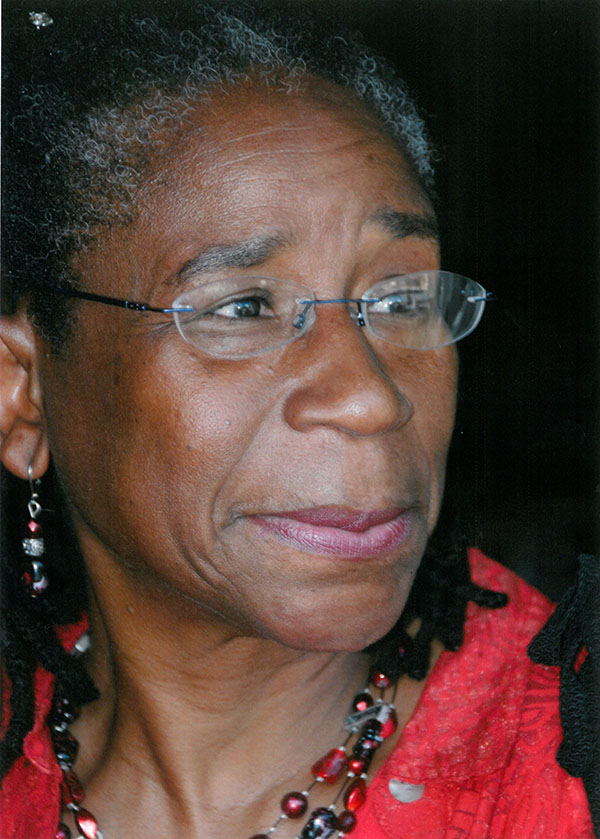Dr. Valerie A. Batts ’74
2023 Beech Outstanding Alumni Award
 Valerie Batts developed a passion for social justice at an early age. Growing up in eastern North Carolina in the 1950s and 60s, Batts experienced racial injustice. When she left home for UNC in 1970, she carried her passion for the “concept of fairness within a society” with her.
Valerie Batts developed a passion for social justice at an early age. Growing up in eastern North Carolina in the 1950s and 60s, Batts experienced racial injustice. When she left home for UNC in 1970, she carried her passion for the “concept of fairness within a society” with her.
“Looking back, 1970 was an amazing time to be coming of age,” said the Rocky Mount native. “My high school had desegregated the year before, and I was coming to understand my voice as an African American woman. Carolina was, in many ways, a refuge. We felt safe on the 10th floor of Hinton James, an experiment of living and learning across differences.”
During her years at Carolina, Batts, a recipient of the 2023 Harvey E. Beech Outstanding Alumni Award, nurtured her social justice roots. She helped found the Black Student Movement (BSM) and served as its minister of information, as editor of its newspaper, the Black Ink, and also became the first Miss BSM. “Having the freedom to support the BSM and the activities we fostered allowed me to embrace that the ‘enemy’ was white superiority culture and structural racism, and the resulting need to intentionally learn and re-learn that we are not inferior,” she said. The daughter of a decorated WWII veteran and granddaughter of sharecroppers, Batts said these experiences helped shape her understanding of social justice issues and led her on a lifelong path of activism and advocacy.
Today, she’s a renowned clinical psychologist with a PhD in clinical psychology from Duke University. She co-founded VISIONS, Inc. [Vigorous Interventions in Ongoing Natural Settings], a non-profit training and consulting organization that focuses on diversity, equity, inclusion and justice and is its executive director. When asked about a notable national achievement, Batts, who lives in Roxbury, Massachusetts, with her husband, Dr. John Capitman, said it’s gratifying that VISIONS has been a leader in anti-racism and anti-oppression work since its 1984 inception.
Two former Tar Heel classmates say her contributions to psychology and unwavering commitment to social justice are inspiring. “With her guidance and approach, many, me included, have plotted a path to fight racism and other forms of systemic injustice and worked to create some level of liberation and systemic change while at the same time protecting our mental and physical health as best we can,” said Angela Bryant ’73, ’76 (JD), assistant secretary for Equity and Inclusion at the N.C. Department of Health and Human Services. Bryant, a former member of UNC’s Board of Trustees, co-founded VISIONS and also co-founded UNC’s Black Alumni Reunion.
It’s been nearly 50 years since The Rev. Willie “Will” Mebane, Jr. ’75 and Batts graduated from Carolina. Mebane said he couldn’t have predicted that they’d share efforts to address the legacy of racism endemic in The Episcopal Church. Mebane is an ordained priest and the ninth rector of Saint Barnabas’ Episcopal Church in Falmouth, Massachusetts. “Val has worked for several years with other dioceses and the church as it seeks to become the beloved community envisioned by The Rev. Dr. Martin Luther King, Jr.,” Mebane said. “Val’s ability, like my own, was undoubtedly shaped by her experiences at a seminal time at Carolina.”
In May 2006, the Episcopal Divinity School at Cambridge, Massachusetts, awarded Batts an honorary degree for her ecumenical, social justice and anti- racism work. A self-described shy person, Batts said she’s amazed she was the chief negotiator with then-UNC System President Bill Friday asked students asked for additional Black faculty and a Black student center, among other demands. She realizes now she was honing her personal and professional calling to speak truth to power.
Good universities, Batts said, provide pathways for students to create new ways of seeing reality and solving problems. This award is important to her because the history’s worth acknowledging. More importantly, she said she feels compelled to impress upon Black students who’ve come through Carolina since 1970 why they must carry the torch.
— Cassandra P. Harper ’86